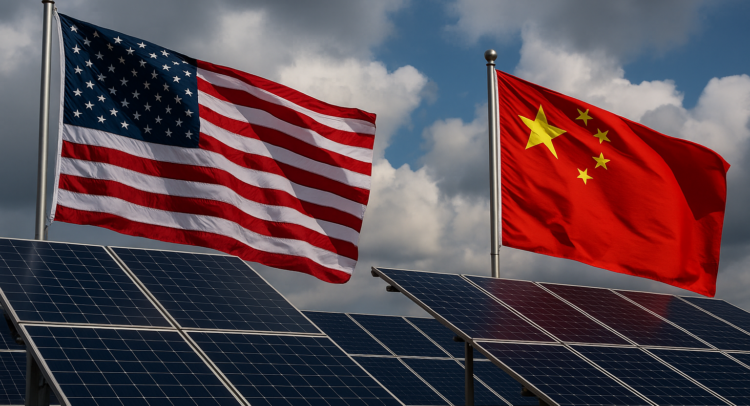According to a Reuters report, U.S. energy officials have been closely examining some Chinese-made solar and battery equipment after discovering undocumented communication devices inside them, such as cellular radios.
Elevate Your Investing Strategy:
- Take advantage of TipRanks Premium at 50% off! Unlock powerful investing tools, advanced data, and expert analyst insights to help you invest with confidence.
These parts weren’t listed in any manuals, and experts say they could be used to remotely access or control the equipment, possibly bypassing security firewalls. That raises major concerns about whether critical parts of the U.S. energy grid could be vulnerable to sabotage or disruption.
The report says this kind of hardware was found in some solar inverters and batteries—devices that connect solar panels and energy storage systems to the grid. These are found everywhere, from rooftop solar setups to electric vehicle chargers.
The U.S. government hasn’t named any companies yet or publicly confirmed the findings, but the quiet investigations and policy discussions suggest officials are treating this seriously.

Why This Matters
China makes a considerable share of the world’s solar inverters. Huawei is the biggest name, followed by other Chinese companies like Sungrow and Ginlong Solis. In fact, Huawei alone accounted for 29% of global inverter shipments in 2022.
This means a significant portion of global solar infrastructure could be affected if security concerns lead to new regulations or trade restrictions.
As more of the world shifts to clean energy, reliance on Chinese hardware could become a strategic risk, especially if governments push for safer, homegrown alternatives.
What This Could Mean for Solar Stocks
So far, there’s no major market reaction—but that could change if action is taken.
Potential Winners
- SolarEdge Technologies (SEDG) and Enphase Energy (ENPH), two major Israeli/U.S. inverter companies, could benefit if utilities and installers avoid Chinese equipment.
- Domestic battery manufacturers may also gain if restrictions are placed on Chinese battery imports.
Possible Risks
- If policy shifts, utility companies like NextEra Energy (NEE) and others relying on low-cost Chinese gear might face higher costs or supply delays.
- U.S. companies partnered with Chinese suppliers may need to pivot quickly if new rules are introduced.
The Bottom Line
Clean energy is booming, but this story shows that security and trust are becoming just as important as price and performance. If the U.S. and other countries move to restrict Chinese-made inverters and batteries, expect a reshuffling of the solar supply chain—and new winners and losers in the stock market.
Using TipRanks’ Comparison Tool, we compared the three companies mentioned in the article—and the two solar players could stand to benefit if the market shifts toward trusted, non-Chinese suppliers.

















